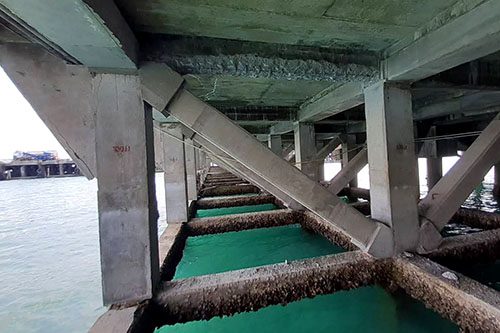Researchers have developed a way to combat cracking and structural damage in marine infrastructure and protect concrete from microbially induced corrosion.
The team at Hong Kong’s Polytechnic University, led by Professor Xiang-dong Li, has taken a biomineralisation approach to the problem and found “an effective solution”. Professor Li is the Dean of Faculty of Construction and Environment who is also involved in sustainable urban development and environmental science and technology.
“The biomineralisation technique serves as an environmentally friendly coating method for controlling concrete corrosion, with minimal impact on the overall biofilm communities. Also, it utilises carbon dioxide to produce mineral precipitates, enhancing the durability of concrete structures,” Prof. Li explained.
“This process not only reduces the carbon footprint and energy consumption of marine infrastructure throughout its lifespan, but also makes a valuable contribution to carbon neutrality and sustainability.”
The biomineralised film acts as a protective layer, controlling sulfate diffusion and isolating the concrete from the corrosive SRB communities. This protective mechanism significantly extends the lifespan of concrete structures, according to the team, and has no negative impact on the native marine microbial communities.
The study showed the biomineralisation treatment effectively prevents corrosion by reducing the total and relative abundance of sulfate-reducing bacteria (SRB), which can produce corrosive hydrogen sulfide that can lead to material deterioration.
“If the biomineralised film remains intact, repainting the concrete structures is unnecessary. The utilisation of a single coating treatment eliminates the need for multiple treatments, further minimising the cost and carbon footprint,” Prof. Li said.
This application also has “strong potential” to use on concrete in sewage environments and water cooling utilities where concrete corrosion is induced by corrosive microorganisms.
The research was published as ‘Biomineralization to prevent microbially induced corrosion on concrete for sustainable marine infrastructure’ in Environmental Science & Technology.


